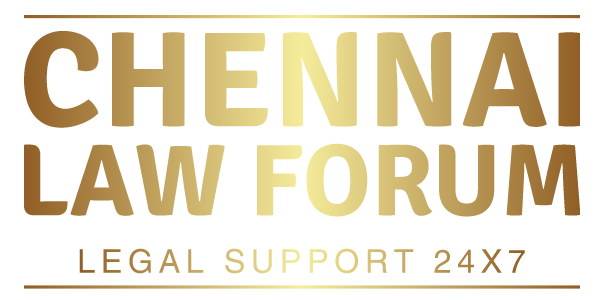Cheque Bounce Cases in Chennai Law Forum
Introduction
Overview of Cheque Bounce Cases
Importance of Hiring a Cheque Bounce Case Lawyer
Understanding Cheque Bounce Cases
Definition and Legal Framework
Cheque bounce cases involve the dishonor of a cheque due to insufficient funds or other reasons. It is governed by specific legal provisions.
Types of Cheque Bounce Offenses
There are various types of cheque bounce offenses, including post-dated cheque bounce, account closed, and insufficient funds.
Key Parties Involved in a Cheque Bounce Case
Multiple parties play a role in cheque bounce cases, such as the drawer, payee, and the bank.
Role of a Cheque Bounce Case Lawyer
Responsibilities and Expertise
A cheque bounce case lawyer provides legal representation, advises clients, and navigates the legal complexities involved in such cases.
Benefits of Hiring a Cheque Bounce Case Lawyer
By hiring a lawyer, you gain access to their expertise, experience, and strategic guidance throughout the legal process.
Finding the Right Cheque Bounce Case Lawyer
Researching and Shortlisting Lawyers
Conduct thorough research to identify reputable cheque bounce case lawyers and create a shortlist for evaluation.
Evaluating the Lawyer’s Experience and Expertise
Assess the lawyer’s experience in handling cheque bounce cases, their success rate, and their knowledge of relevant laws.
Checking Reputation and Client Reviews
Review the lawyer’s reputation in the legal community and seek feedback from previous clients to gauge their reliability and performance.
Initial Consultation with a Cheque Bounce Case Lawyer
Importance of Initial Consultation
An initial consultation allows you to discuss your case, understand the legal options available, and assess the lawyer’s compatibility.
What to Expect During the Consultation
The consultation involves a detailed discussion of your case, analysis of the legal merits, and advice on the best course of action.
Providing Relevant Documents and Information
Prepare and bring all relevant documents, such as the bounced cheque, bank statements, and correspondence related to the case.
Building a Strong Case
Gathering Evidence and Documentation
Collect all necessary evidence, including bank records, communication records, and other relevant documents to support your case.
Analyzing the Cheque Bounce Case
Analyze the circumstances surrounding the cheque bounce, including the intent of the parties involved and any potential defenses.
Formulating Legal Strategies
Based on the analysis, develop effective legal strategies to present a strong case and maximize your chances of a favorable outcome.
Legal Procedures in a Cheque Bounce Case
Filing a Cheque Bounce Complaint
Initiate the legal process by filing a formal complaint with the appropriate court, providing necessary details and supporting documents.
Summons and Notice to Accused
Once the complaint is filed, the court issues summons and notices to the accused, informing them of the charges against them.
Pre-Trial Proceedings
Participate in pre-trial proceedings, which may include case management, exchange of documents, and any required negotiations.
Trial and Evidence Presentation
During the trial, present your evidence, call witnesses if necessary, and argue your case before the court for a favorable judgment.
Defenses in Cheque Bounce Cases
Common Defenses Used by Accused
The accused may employ various defenses, such as lack of knowledge, absence of intention, or dispute regarding the underlying transaction.
Counter-Claims and Cross-Examinations
Engage in counter-claims and cross-examinations to challenge the complainant’s case and strengthen the defense position.
Challenging the Validity of the Cheque
Challenge the validity of the cheque by examining factors such as signature discrepancies, alterations, or improper completion.
Resolving Cheque Bounce Cases
Negotiated Settlements
Explore the possibility of a negotiated settlement, wherein the parties reach an agreement outside the courtroom to resolve the dispute.
Mediation and Alternate Dispute Resolution
Consider mediation or other alternative dispute resolution methods to find a mutually agreeable solution with the assistance of a neutral third party.
Taking the Case to Trial
If a settlement cannot be reached, proceed to trial where the court will hear the arguments, examine the evidence, and deliver a judgment.
Legal Remedies and Penalties
Remedies Available to the Complainant
The complainant can seek remedies such as recovering the cheque amount, compensation for damages, and legal costs.
Penalties for Cheque Bounce Offenses
Cheque bounce offenses can result in penalties, including imprisonment, fines, and damage to the accused’s reputation.
Challenges and Common Issues in Cheque Bounce Cases
Delay in Legal Proceedings
One of the challenges in cheque bounce cases is the potential delay in legal proceedings, which can prolong the resolution process.
Jurisdictional Challenges
Jurisdictional issues may arise when the parties involved are located in different jurisdictions, requiring careful consideration and legal strategies.
Repeat Offenders and Serial Defaulters
Dealing with repeat offenders and serial defaulters adds complexity
to cheque bounce cases and necessitates appropriate legal measures.
Recent Developments in Cheque Bounce Laws
Amendments and Updates
Stay updated on recent amendments to cheque bounce laws, as they may have an impact on the legal procedures and potential outcomes.
Landmark Judgments and Precedents
Learn from significant judgments and precedents in cheque bounce cases to understand how courts interpret and apply the law.
FAQs About Cheque Bounce Cases
What Is the Time Limit for Filing a Cheque Bounce Case?
The time limit for filing a cheque bounce case varies and depends on the jurisdiction, typically ranging from 30 days to three years.
Can a Cheque Bounce Case Be Settled Out of Court?
Yes, a cheque bounce case can be settled out of court through mutual agreement between the parties involved, often with the assistance of their respective lawyers.
What Is the Punishment for Cheque Bounce Offenses?
The punishment for cheque bounce offenses can include imprisonment for a specified period and/or payment of fines, as determined by the court.
Conclusion
In conclusion, dealing with cheque bounce cases can be a complex and challenging process. Understanding the legal framework, roles of key parties, and the importance of hiring a cheque bounce case lawyer are crucial for navigating this legal territory effectively. The right lawyer can provide the necessary expertise, guide you through the legal procedures, and help build a strong case. By exploring the available legal remedies, considering settlement options, and being aware of recent developments and common challenges, you can better position yourself for a successful resolution. Chennai Law Forum, known as the best law firm in India, offers exceptional legal services and expert advice for cheque bounce cases. Don’t hesitate to seek legal assistance and consult with a cheque bounce case lawyer to protect your rights and interests in this legal matter.

